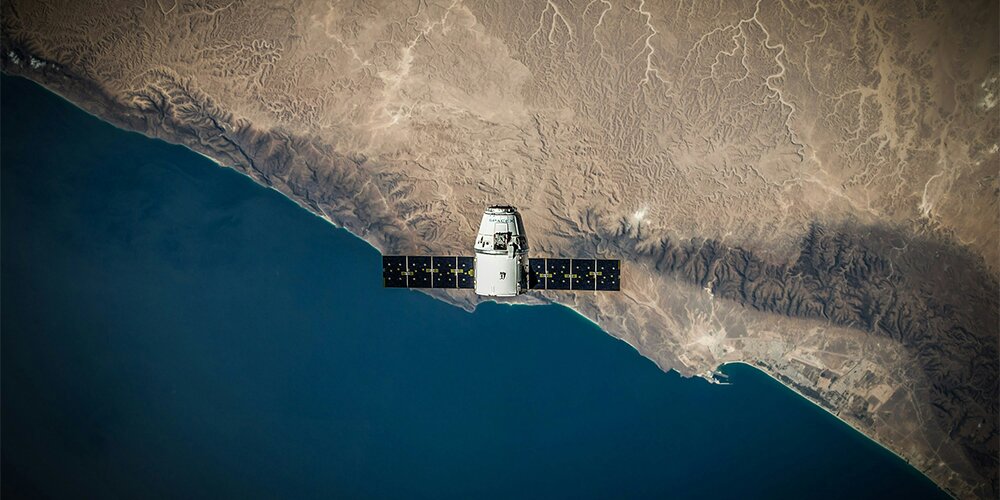Browse our services
Explore how Brookes Bell can help you
Find an expert
Meet our team, find and expert and connect
Contact us
Get in touch, we're here to help

Mitsubishi Heavy Industries (MHI) has launched satellite technology, AIRIS, to monitor the dark fleet across the globe.
Monitoring of the ocean has long been a challenge. Exclusive Economic Zones (EEZ) alone total 53 million square miles of open water. Approximately 100,000 vessels are out at sea at any one time, with at least half of those carrying cargo.
Ships are mandated by the International Maritime Organization (IMO) to use Automatic Identification System (AIS) to provide information about the ship to other nearby vessels and to coastal authorities.
Rogue vessels often operate with their AIS deactivated to avoid detection. These vessels are commonly known as “dark ships”.
This is where satellite technology comes in. MHI’s satellite-mounted detector, called AIRIS – Artificial Intelligence Retraining In Space – is similar to other Earth-observation technology in how it photographs terrestrial objects.
Historically, identifying dark ships relied on downloading high-resolution optical images. However, both the transmission of data and capacity were very limited, meaning that they were not always able to be transmitted back down to a computer on Earth.
Where AIRIS differs from other satellite technologies is in its ability to simultaneously process the visual data using artificial intelligence.
As AIRIS scans the surface of the Earth, it deploys its AI to detect target objects, such as dark ships that have deactivated their AIS, and transmits that location data back. Not only that, but it is able to detect ships that have switched their AIS system off after leaving the port.
“The deployment of AIRIS marks a significant advancement in maritime monitoring, enhancing the ability to track elusive vessels and mitigate illegal activities on the high seas,” Mitsubishi Heavy said in a statement.
MHI also acknowledged that the technology will be able to help crack down on the illegal fishing trade.
Unreported and unregulated fishing is responsible for the loss of 26 million tonnes of fish every year, resulting in $23 billion of economic losses.
Japan Aerospace Exploration Agency (JAXA) gave the green light for trials of AIRIS to begin in space in 2025.
The future potential for the technology will have a wider reach. MHI envisages this detection capability will be expanded to include aircraft and vehicles in the future.
There is no substitute for experience, which is why Brookes Bell’s Master Mariner services are so sought after.
We employ a team of Master Mariners with an enormous amount of collective experience. It’s this experience that can help you solve disputes, improve your operations and processes, and guide you through even the most complex maritime disputes and litigation.
For more maritime industry insights, news and information, read the Brookes Bell News and Knowledge Hub…
MSC to Construct New Container Terminal at Aarhus | Port of Felixstowe Takes Delivery of Five Automated Gantry Cranes | ST Engineering Eyes Offshore Renewables Growth With New Singapore Yar